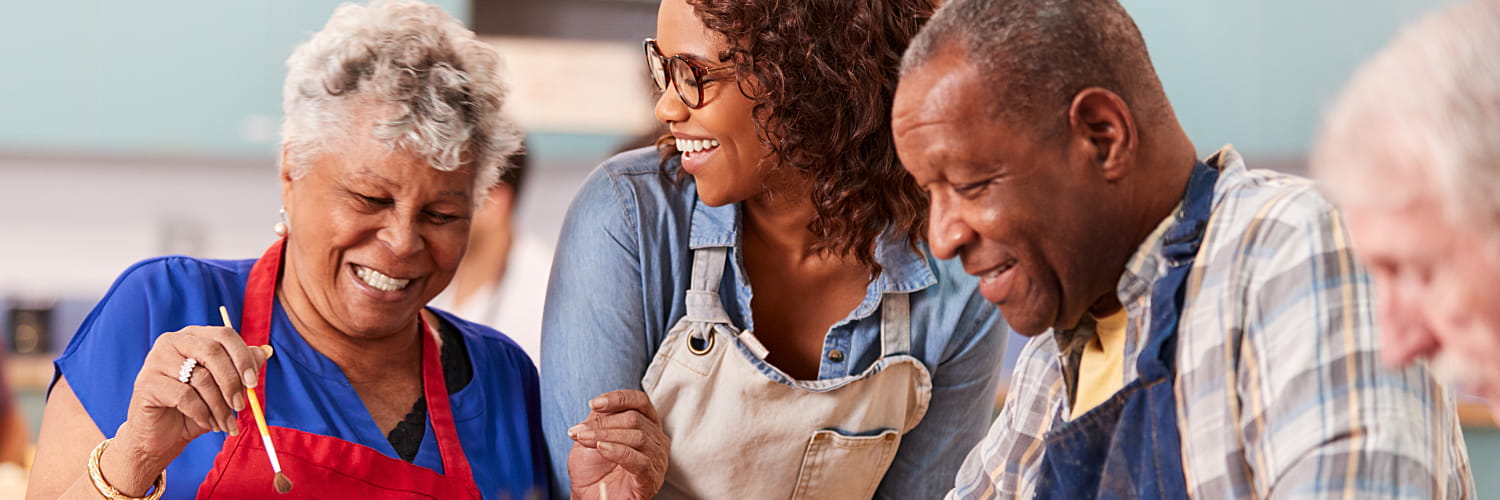Being active is essential — for everyone. It improves quality of life and keeps both the mind and body moving; this is especially vital for older adults, who may struggle to stay active in retirement if they have physical or health restrictions and live in assisted living facilities.
Getting stuck in a rut can impact mental health. The good news is that there are plenty of activities for older adults that promote getting active, staying social and having fun.
The Benefits of Staying Active
Today's assisted living facilities are often quite lively, with all sorts of social events and activities planned for residents.
Medical professionals understand how important it is to organize activities for older adults in order to keep the mind sharp, minimize depression and encourage independence. A study from the National Institutes of Health (NIH) found that older adults who participated in physical activities each week saw improvements in cognitive function, social well-being and physical health.
While physical activity has some of the biggest overall health benefits, social and mental activities also help maintain a high quality of life in retirement.
Activities for Older Adults
Here are just a few activities to enjoy in retirement, with options for every level of health and mobility.
1. Explore the Outdoors
For those who are more active, spending time in the great outdoors such as going on walks and bike rides can boost physical and mental health. Being outside isn't limited to those who are more mobile, though. Sitting outside bird-watching, enjoying an outdoor concert and simple gardening are all beneficial outdoor activities.
Being outdoors for even short periods has a variety of benefits, including helping to lower blood pressure, increasing vitamin D exposure and promoting feelings of happiness.
2. Participate in Group Exercises
Depending on individual needs, there are plenty of options for low- and moderate-impact exercises for older adults. For instance, joining a walking club can provide social engagement and help keep up cardiovascular activity every week.
For those who want to focus on maintaining physical wellness but have mobility issues, an increasingly popular exercise option in many assisted living facilities are Nintendo Wii games such as bowling and tennis. These rely on players' body movement rather than just controllers, so it promotes low-impact activity.
3. Learn Something New
As people age, it's critical to keep the mind engaged. Thanks to online learning, older adults can join group and individual courses on just about any topic, from art to language learning to baking.
Many assisted living facilities encourage residents to learn new skills by offering regular activity and craft sessions. Taking up a new hobby is another popular option. Consider learning to knit, crochet or make jewelry, which can help promote fine motor skills, too.
4. Volunteer
There's nothing like engaging in a good cause to boost mental health and feel a sense of purpose. The NIH found that older adults who volunteer reported reduced symptoms of depression and better overall health.
Volunteering to tend to the greenery in public spaces or spending time at a local youth center are great options for the more active. Even if mobility issues are a concern, older adults can still volunteer their time with low-impact activities such as reading books or knitting blankets for hospitals or shelters.
5. Take in the Arts
Art, film and music help bring out the fun and beauty in life, and enjoying them shouldn't stop with age. Research from the Mayo Clinic found that listening to and engaging with music can help relieve stress and reduce anxiety for those with Alzheimer's disease.
Medical professionals know the importance of the arts, which is why so many assisted living facilities plan activities and events around them. Day trips to museums, movies and concerts are common. Hosting youth choirs to sing during the holidays and weekly movie nights are also popular social activities.
Create an Active Lifestyle
Staying active in retirement is one of the best ways to reduce depression, promote health and be social. Continuing an active lifestyle can help make retirement more enjoyable as well as encourage a long, fulfilling life.


 Liz Froment
Liz Froment










